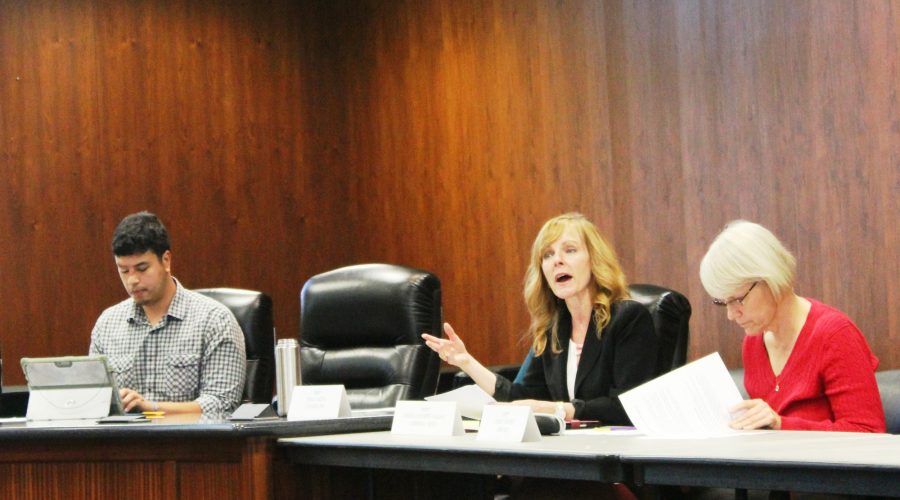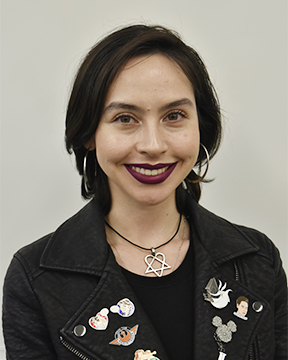Faculty Senate extensively discussed a full-time hiring committee this Tuesday.
Dr. Angela Hoppe-Nagao, a Speech professor at Cerritos College first started proposing this idea to the committee last fall.
“I’ve been a faculty member here for many years and as long as I’ve been here, there has been a lot of dissatisfaction with how we go about selecting which department gets to hire new faculty,” Nagao mentioned.
“Last fall the committee wanted to create a task force to work on this issue and we passed a resolution last week, which will be this Faculty Senate Hiring Allocation Priorities Committee,” Nagao said.
During this meeting, however, the committee’s structure was approved and over the course of months the process on how it will follow through will be discussed.
“I’m really satisfied with how things are going, one of the things that needs to be considered is that the college has over 250,000 full time and 600 part time faculty members and hiring a full time faculty is one of the most important decisions we make on this campus.” Nagao compares this process to a million dollar marriage.
Nagao wants to make sure that with this new committee it will be able to provide students with faculty that is needed and remain prevalent throughout the entire process.
Getting to this point was a difficult journey as rankings kept changing many times over the course of meetings and the faculty began to feel as if their voices were being dismissed.
“One big example is last fall we were told that we were going to get eight new full time faculty members for the campus then at the last minute, this spring we found out we were getting 18, so there has been a lot of changes and confusion and we want to create a process that’s more transparent,” Nagao states.
Political Science Professor and acting President of the faculty union, Terrance Mullins, feels this topic has been long overdue and is what has been needed for many years.
“This is how this new committee is supposed to work: Ed Code (87360) gives the Faculty Senate a lot of purview over certain things like curriculum, hiring or faculty development. The problem was that deans were overseeing and making decisions when it was supposed to be under ED Code faculty driven,’ Mullins expresses.
When completed it will be a sub committee of faculty senate which will ensure that Ed Code will be honored.
“The way it was working before this proposal divisions would be making their own rankings, faculty had some input then the deans of each division would go to a meeting behind closed doors and magic happened and in some cases the decisions would not make sense,” Mullins mentions.
Theoretically the way its supposed to work is that after the senate subcommittee makes their rankings, which departments get hired first it will then go to the senate to vote yes or no then it will go the president for revision.
The faculty union, Cerritos College Faculty Federation’s president Mullins spoke last week about the faculty going to the committee to talk about the education plan.
“What has been going for nearly two decades, this campus has been trying to move to a 16 week calendar for all kinds of reasons. The real benefit of the switch would be that we could now compete with other colleges who are on 16 weeks,” Mullins said.
Mullins also expressed the benefit of having a winter session with the switch would give students more opportunities to transfer out.
Many students would also have the opportunity to do other things such as work if they decide not to attend a winter session and gain money or avoid paying for child care if needed.
“Having a month instead of a three week winter session could really be a life changer for many students which would be the real benefit of this,” Mullins states.
The reason this change has not come to bout is simply because administration does not want to go through with it, Mullins firmly believes this.
“[Administration] will say its a cost issue, but it really isn’t, if that were the case whole districts would not have done it,” Mullins mentions.
Fear mongering is also something Mullins feels has been implemented when it comes to the change and thinks it would only work on faculty that have been at he school for a long time, stating, “The fear of changing to 16 weeks would cause too many changes is just simply not the case, if it were true it would have been seen in other districts.”
Similarly, this also applies to sabbaticals in reference to its cost and how the district leads faculty to believe that the cost is actually higher.
Full time English professor Frank Gaik, is looking to take a sabbatical the following academic year to further his research on linguistics.
Although it was approved by Faculty Senate, Gaik is still waiting on the Board of Trustees’ approval.
Hoping to receive the trustees’ approval, Gaik believes his sabbatical research will provide students a better understanding of English.
“This will help us improve the teaching of writing and literature in English with special emphasis on Pacific Islanders language and culture, since students with that background, are an increasing portion of our student body” Gaik said.










